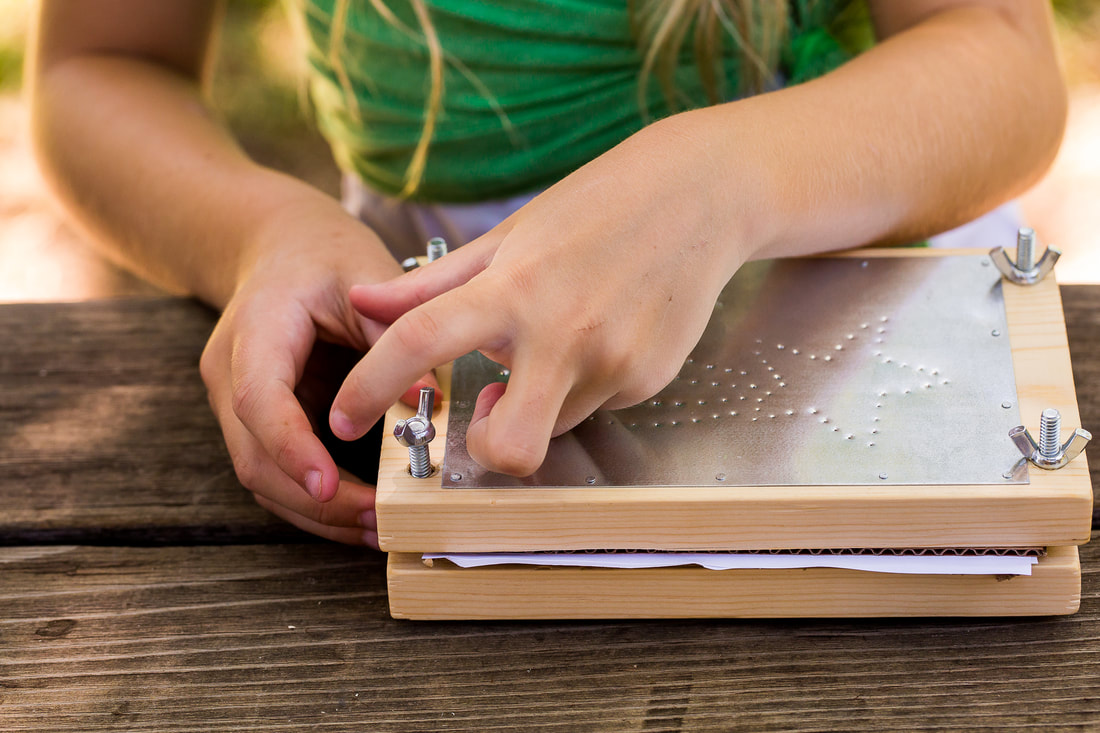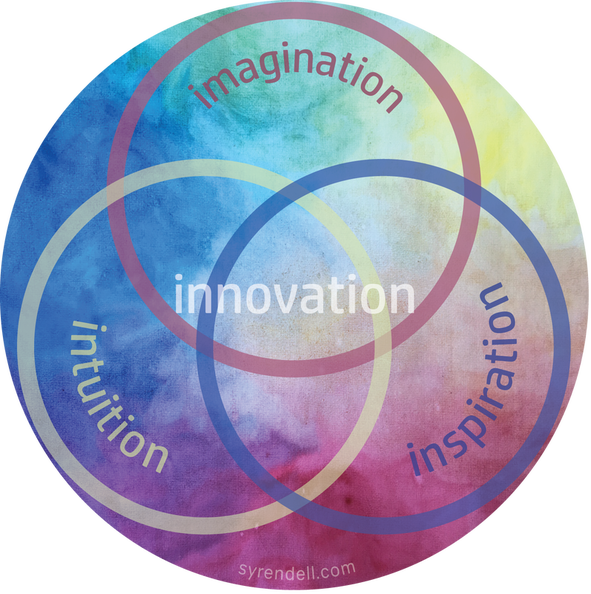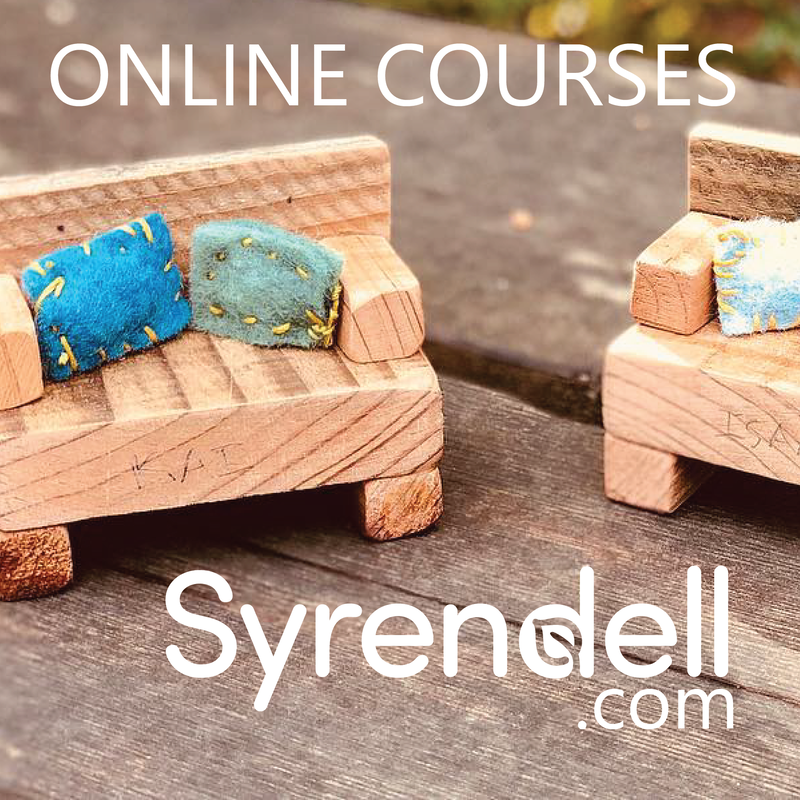|
"Learning and innovation go hand in hand. The arrogance of success is to think that what you did yesterday will be sufficient for tomorrow." - William Pollard (1911-1989), priest and physicist We live in an exciting time where we have an opportunity to spark a modern Renaissance. In many fields - education, engineering, philosophy, medicine, religion, politics to name a few, we want to effect change that improves and enhances our global community. We are poised for cultural renewal, one that is dynamic yet sustainable, and we need the tools to achieve it. Here is one viable formula: imagination + inspiration + intuition = INNOVATION. From a series of lectures delivered in Basel, Switzerland, in 1909, Rudolf Steiner connected imagination, inspiration, and intuition as a form of spiritual scaffolding. Imagination is the capacity for super-sensible cognition of the physical world as imbued with a living essence. Inspiration is the next level up that directs imagination towards a path or goal. Intuition is the highest form of cognition whereby the individual is the living essence. Translated and transcribed from Dr. Steiner's lecture, about intuition: "...there shall be in the human being that quality of universal love which causes him to make no distinction between himself and the other beings in his spiritual environment, but to pour forth his very self into the environment; thus he no longer remains outside but lives within the beings with whom he has spiritual communion." Dr. Steiner was cutting edge in his thinking, and in modern parlance, an innovator. What is innovation? It is derived from Latin innovare - to renew or make anew. It describes a transformative process that is meant to be a shared, communal experience. When Dr. Steiner spoke of imagination, inspiration, and intuition, he invited each of us to first look inward. Then, gradually, we develop a proficiency for converting individual thoughts (imagination) towards a directed path (inspiration) and finally, becoming one with the universal thought (intuition). The next step would be to transform enlightened thinking into empathetic doing. This is where innovation comes in. The spiritual world of the inspired, intuitive imagination leads to the practical world of innovation - of renewal and renaissance. This equation gives substance to the spirit, the tangible to the tantalizing, the work to the wonder. From J.K. Rowling, author: "Imagination is not only the uniquely human capacity to envision that which is not, and therefore the fount of all invention and innovation. In its arguably most transformative and revelatory capacity, it is the power that enables us to empathize with humans whose experiences we have never shared." Her Harry Potter books have certainly sparked renewal (in literary interest for the youngsters), and a renaissance in the wonder of wizarding magic! Innovation can be a scary prospect for some; people need time to cozy up to change. In some arenas, unfortunately, change from "the way things are done" is frowned upon. Perhaps, historically, change does not automatically mean improvement in the status quo. However, as a tool for the 21st century, equating intuition with innovation creates the formula for spirit-filled, purpose-driven transformation, and hence change that comes from a place of universally responsible intention. Neil de Grasse Tyson, the successor of Carl Sagan's Cosmos, puts it this way: "Once you have an innovation culture, even those who are not scientists or engineers - poets, actors, journalists - they, as communities, embrace the meaning of what it is to be scientifically literate. They embrace the concept of an innovation culture. They vote in ways that promote it." We are slowly recognizing the need for positive renewal. Dennis Klocek, Director of Consciousness Studies at Rudolf Steiner College, is a keynote speaker at an upcoming conference for Waldorf teachers. His lecture "Reigniting the Flame: Imagination, Inspiration, and Intuition" will bring Steiner's ideas to light for Waldorf educators. Combined with other presenters at the conference, such as Betty Staley, who encourages educators to "re-imagine the Waldorf curriculum", the message of innovation will be an important element to consider in the future of Waldorf, and education in general. In a comprehensive study conducted by the Stanford Center for Opportunity Policy in Education about Alice Birney, a Public Waldorf Charter School in the Sacramento City Unified School District, the program and faculty are applauded for their forward strides in education: "By serving as sites for innovation, district schools can learn much from their example about broader ways to conceptualize school and student development." Upload Growing a Waldorf-Inspired Approach to a Public School District here. In our work as a dynamic global community, in making decisions that affect all of us, our children, our resources, we need a purposeful, spirit-driven path of creativity and compassion. We are constantly learning, and if William Pollard is right in his thinking, we can't rely on what we knew yesterday to deal with tomorrow. Each present moment must therefore be an innovation, which is the sum of our imagination, inspiration, and intuition. Comments are closed.
|
Archives
June 2023
|




 RSS Feed
RSS Feed
